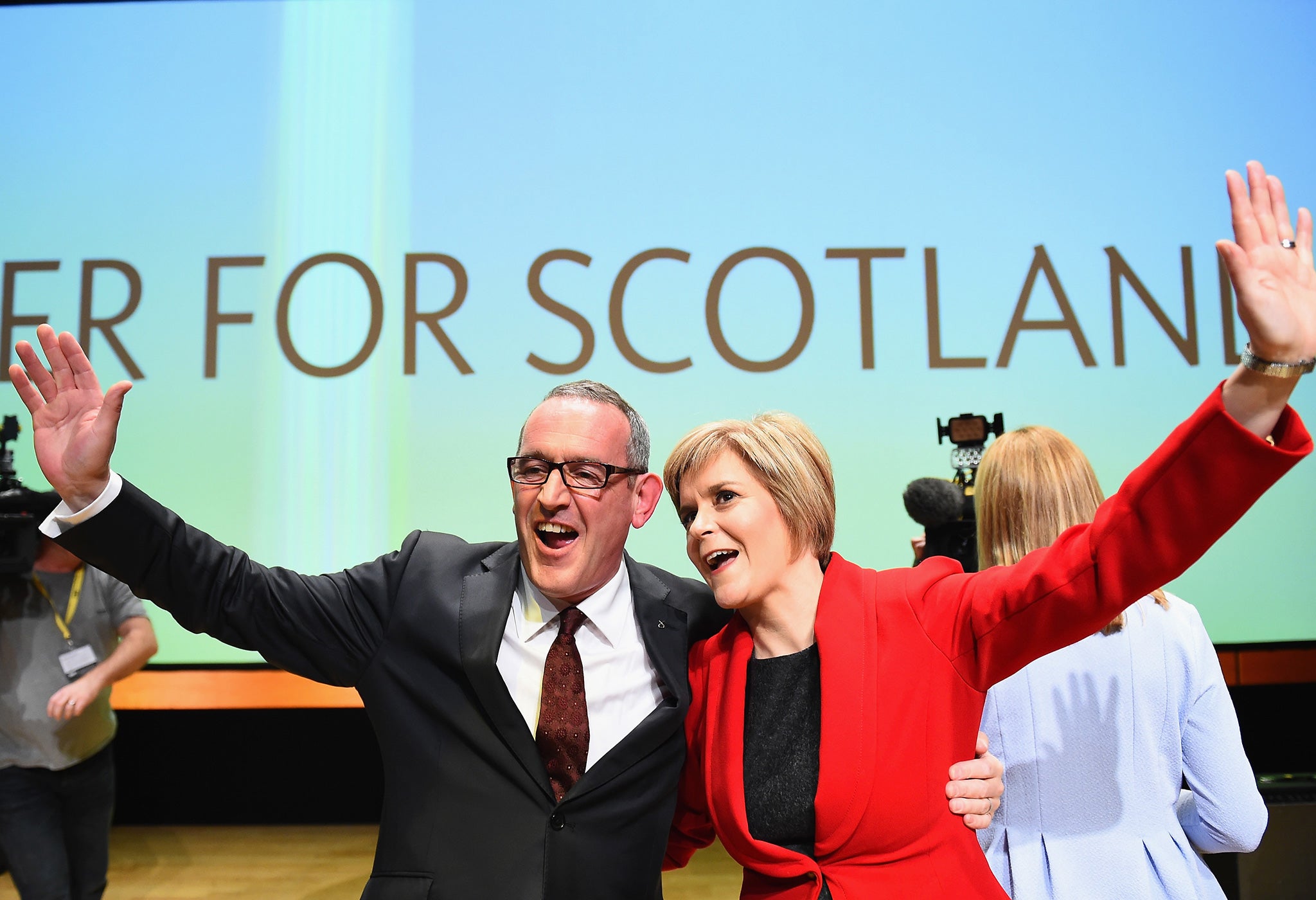General Election 2015: SNP prepared to wage war of attrition against a Labour government, says party's deputy leader
Stewart Hosie said the SNP could contest "any bit of legislation they wanted"

The SNP is preparing to wage a post-election war of attrition with Labour by instructing its Westminster MPs to vote against a minority government on any cut or spending decision it dislikes, the party’s deputy leader has said.
Stewart Hosie insisted that in the absence of a formal deal with Labour after the general election, SNP MPs would be able to vote against “any bit of legislation they wanted”, including the crucial estimates which give ministers the legal authority they need to spend money.
Launching the SNP’s manifesto in Edinburgh tomorrow, leader Nicola Sturgeon will attempt to cast her party as a force which can benefit the whole UK, setting out its alternative to austerity and promising to change the country’s welfare system and foreign policy.
But Mr Hosie said the party’s MPs would have no hesitation in voting against Westminster spending proposals that it believed were a waste of public money – such as the renewal of the UK’s Trident nuclear deterrent.
“If this was done on a vote-by-vote basis, then SNP MPs would be perfectly entitled to table any amendment they wanted or vote against any bit of legislation they wanted, absolutely,” he said. “If we didn’t agree with a bit of spending, if we didn’t agree with a particular cut, then of course we could vote against that in the absence of a five-year deal.”
In pictures: Experts' predictions for the General Election - 19/04/15
Show all 10Both Labour and the Conservatives support the renewal of Trident and it would still be likely to go ahead even if the SNP, which may have more than 50 MPs in the House of Commons after 7 May, voted against it. But the nationalist party may win wider support if it forced votes on Labour’s spending plans.
“The key thing is the cuts would appear in a Budget, and we would of course vote against cuts that we didn’t like, and the spending would appear in the estimates and we would of course vote against the spending we didn’t want to see,” Mr Hosie told the BBC’s Sunday Politics Scotland programme.
“In the absence of a five-year deal, there would be no deal, so we would be perfectly at liberty to table amendments to budgets, table amendments to legislation, vote against or table amendments to estimates. Perfectly sensible.”
Mr Hosie denied that interventions by the SNP on spending estimates – which are usually waved through by Parliament – would bring into doubt the legitimacy of the Labour administration, arguing that “every defeat for Government is not a confidence measure”.
If the SNP strategy worked, Ed Miliband would not simply be able to call a fresh election in an attempt to win a majority due to the Fixed Term Parliament Act, which became law in 2011. Instead, his Government would have to lose a vote of confidence and then wait for 14 days while other parties tried to form a new administration.
Such an arrangement could allow the SNP to vote down significant parts of a Labour Government’s legislative agenda while keeping it propped up through confidence motions.
Reacting to Mr Hosie’s comments, Conservative Party chairman Grant Shapps said: “The SNP are threatening to hold Britain to ransom to guarantee an Ed Miliband government gives them what they want – weaker defences, more borrowing, more debt and more taxes.
“If the SNP vetoed defence spending for a year, our troops risk not being paid. Working people across our country will pay dearly for the economic chaos of Labour-SNP.”
The SNP’s manifesto is expected to contain proposals for real-terms spending increases of 0.5 per cent a year, fresh powers for the energy regulator Ofgem and support for Labour’s promise to reduce English university tuition fees from £9,000 to £6,000 a year. Ms Sturgeon will also commit the party to voting on English issues, such as NHS investment.
The Independent has got together with May2015.com to produce a poll of polls that produces the most up-to-date data in as close to real time as is possible.
Click the buttons below to explore how the main parties' fortunes have changed:
All data, polls and graphics are courtesy of May2015.com. Click through for daily analysis, in-depth features and all the data you need. (All historical data used is provided by UK Polling Report)
Subscribe to Independent Premium to bookmark this article
Want to bookmark your favourite articles and stories to read or reference later? Start your Independent Premium subscription today.

Join our commenting forum
Join thought-provoking conversations, follow other Independent readers and see their replies